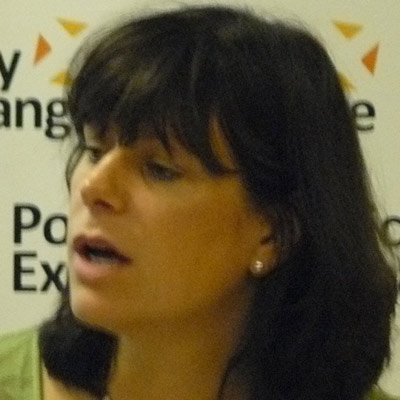Child abuse image policies risk looking like cynical manipulation
 The government have promoted this as a victory, commanding today’s headlines. If David Cameron and his advisor Claire Perry are hyping a policy they know is of marginal importance, many people will be forced to conclude that the announcement is a cynical manipulation of parents’ fears in order to appear to be taking action.
The government have promoted this as a victory, commanding today’s headlines. If David Cameron and his advisor Claire Perry are hyping a policy they know is of marginal importance, many people will be forced to conclude that the announcement is a cynical manipulation of parents’ fears in order to appear to be taking action.
Their argument is that a small number of potential child abusers first experience child abuse images through online search. They believe that this acts as a ‘gateway drug’ to further experimentation. They claim to have seen evidence of this, and have to our knowledge produced none. Perhaps they are right, perhaps not. But other figures, such as Jim Gamble, former head of the Child Exploitation and Online Protection Centre (CEOP) says on ITV’s website:
The way to deter offenders from raping, abusing, photographing, sharing or seeking out images of child abuse is to line child abusers up, in the dock of a court room. One of the main problems is that people can see that is not happening.
That is why public frustration often results in online vigilantes like Letzgo hunting enticing paedophiles to meet offline or actions by charities like Terre des Hommes who raised awareness of the problem by luring thousands of suspect sex offenders from their online nests to engage a virtual child.
This is where the government must pause, look at themselves in the moral mirror they hold up to others so often, and ask whether they are doing enough?
And before ministers hide behind the wall of recession and austerity consider this. Less than £1.5 million a year would pay for 12 regional child protection experts, supported by twelve training coordinators.
A police officer specialising in child abuse told PC Pro that the announcement is hype:
“I simply do not see people using Google, etc to search for child abuse,” the source said. “It’s too risky for them.”
“We need more staff,” the source added. “We have a nine-month backlog – that’s not fair to victims.”
A simple look at the numbers suggests that it may well be funding of CEOP and police that is causing a reduction in prosecutions. According to the Guardian:
The detailed statistics from the solicitor-general, Oliver Heald, show the number of child sexual abuse cases being referred to the Crown Prosecution Service by police forces across England and Wales has fallen by 28% from a peak of 13,018 in 2010-11 to 9,381 in 2012-13. This is the lowest level for more than five years and comes over a period when the number of such cases reported to the police has risen steadily to a record high of 18,915 in 2012-13.
We could also ask if funding for social services is adequate, or whether government is endangering lives very directly by failing to provide proper support.
Cameron and Perry learnt earlier this year that if they accuse companies like Google, Yahoo and Microsoft of aiding paedophiles, those companies are bound to take action. This spring, Google promised £1 million to the Internet Watch Foundation after Cameron accused Google of not doing enough. A few months later, Maria Miller asked how much ISPs could promise to give towards a broader education programme. In the speech Cameron gave in July, Cameron demanded further action from search engines, demanding “depraved” terms be removed completely.
What Cameron and Perry have learnt is that Internet companies are susceptible to pressure, and will take action when threatened. It doesn’t matter if the companies are at fault, or can only make a limited difference, but when accused of aiding paedophilia, they are certain to take action to limit the reputational damage.
The least that politicians need to do is to make sure we know that they are dealing with real problems, rather than chimeras. We don’t know, as we’ve seen no evidence, whether Google and Microsoft really will be able to make a difference by limiting search, or whether the actions are cosmetic. It’s worth remembering that Google and Microsoft have always removed search results, such as URLs or images, that are reported to them.
Politicians must do what they can, where they are directly responsible. If they claim to want to deal with paedophilia, then they should be prepared to announce funding to CEOP so that criminals are investigated and locked up: something Google and Microsoft simply can’t do.
In the absence of evidence and new financial commitments to law enforcement, Cameron and Perry risk looking like they are prepared to cynically manipulate the emotions of genuinely worried parents, purely in order to generate headlines. Victims should be worried that they may only be interesting while they provide easy media hits. Internet companies, too, will learn that they will be the targets of future shake downs by politicians who identify subjects of moral outrage.
None of this feels like good democratic governance. If this is the kind of politics some of our MPs think we want, then we should be prepared to call them out.
